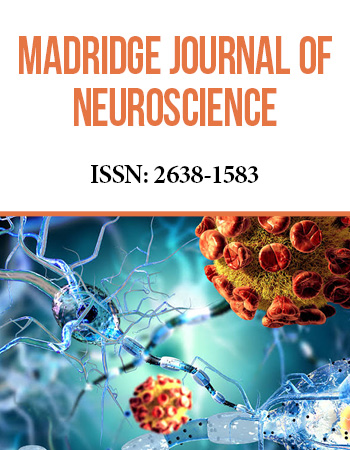International Neurology Conference
December 3-4, 2018 Valencia, Spain
Pretreated Fucoidan Confers Neuroprotection against Trainset Global Cerebral Ischemic Injury in the Gerbil Hippocampal Ca1 Area via Reducing of Glial Cell Activation and Oxidative Stress
Kangwon National University, South Korea
Purpose: Fucoidan is a sulfated polysaccharide derived from brown algae and possesses various beneficial activities, such as anti-inflammatory and antioxidant properties. Previous studies have shown that fucoidan displays protective effect against ischemia-reperfusion injury in some organs. However, few studies have been reported regarding the protective effect of fucoidan against cerebral ischemic injury and its related mechanisms.
Methods: Therefore, in this study, we examined the neuroprotective effect of fucoidan against cerebral ischemic injury, as well as underlying mechanisms using a gerbil model of transient global cerebral ischemia (tGCI) which shows loss of pyramidal neurons in the hippocampal cornu ammonis 1(CA1) area. Fucoidan (25 and 50 mg/kg) was intraperitoneally administered once daily for 3 days before tGCI.
Results: Pretreatment with 50 mg/kg of fucoidan, not 25 mg/kg fucoidan, attenuated tGCI-induced hyperactivity and protected CA1 pyramidal neurons from ischemic injury following tGCI. In addition, pretreatment with 50 mg/kg of fucoidan inhibited activations of resident astrocytes and microglia in the ischemic CA1 area. Furthermore, pretreatment with 50 mg/kg of fucoidan significantly reduced the increased 4-hydroxy-2-noneal and superoxide anion radical production in the ischemic CA1 area after tGCI and significantly increased expressions of superoxide dismutase 1(SOD1) and SOD2 in the CA1 pyramidal neurons compared with the vehicle-treated-group. Additionally, we found that treatment with diethyldithiocarbamate (an inhibitor of SODs) to the fucoidantreated-group notably abolished the fucoidan-mediated neuroprotection in the ischemic CA1 area following tGCI.
Conclusion: In brief, these results indicate that fucoidan can effectively protect neurons from tGCI-induced ischemic injury through attenuation of activated resident glial cells and reduction of oxidative stress following increasing SODs. Thus, we strongly suggest that fucoidan can be used as a useful preventive agent in cerebral ischemia.
Keywords: Fucoidan, transient global cerebral ischemia, neuroprotection, resident glial cell, oxidative stress, superoxide dismutase


